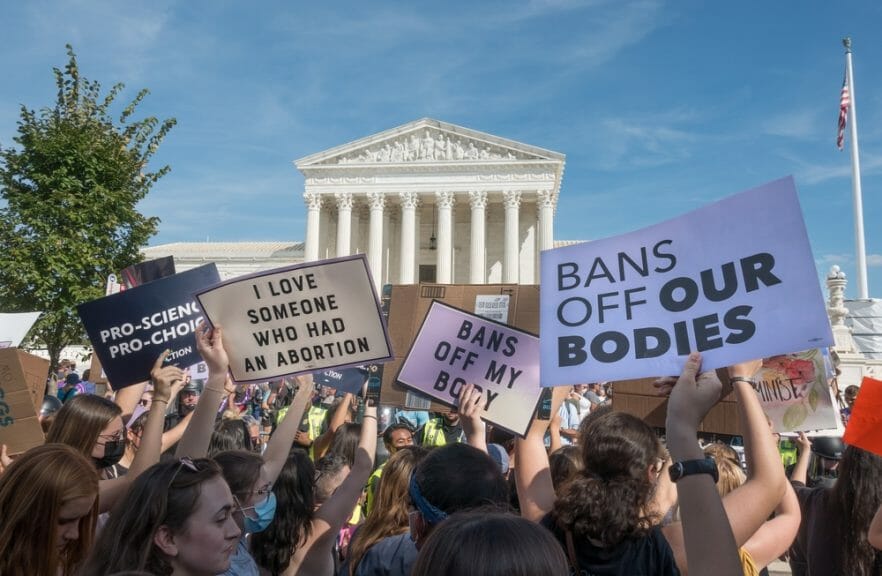On Friday, a federal judge in Texas ordered a hold on the abortion pill mifepristone’s Food and Drug Administration (FDA) approval, delivering a significant setback to abortion rights activists. Mifepristone has been FDA-approved since 2000, and more than half of all abortions in the United States are done with medication.
The Ruling
The Biden administration is currently appealing the judge’s ruling, which is set to go into effect later this week. The order could potentially pause FDA approval of mifepristone nationwide, even in states where abortion is legal.
After US District Judge Matthew Kacsmaryk issued the ruling on Friday evening, US District Judge Thomas O. Rice in Washington state issued a separate, contradictory ruling ordering the FDA not to change mifepristone’s availability. These two opposing rulings set up a legal battle that is largely unprecedented in the United States and likely to reach the Supreme Court.

Judge Matthew Kacsmaryk is a Trump nominee, confirmed to the bench in 2019. His ruling from Friday takes the side of the anti-abortion group Alliance for Hippocratic Medicine, which filed a lawsuit in Texas last year claiming that the FDA had not studied mifepristone’s safety before approving it twenty-three years ago. According to Kacsmaryk, the FDA “omitted any evaluation of the psychological effects of the drug or an evaluation of the long-term medical consequences of the drug.” His 67-page decision document uses terms like “unborn human” and “unborn child” when referring to a fetus and suggests (despite contradictory evidence from the landmark 2020 Turnaway Study) that people tend to regret their abortions, writing,
Women who have aborted a child—especially through chemical abortion drugs that necessitate the woman seeing her aborted child once it passes—often experience shame, regret, anxiety, depression, drug abuse and suicidal thoughts because of the abortion.
Federal Judge Matthew Kacsmaryk’s ruling from Friday
Meanwhile, evidence from the Turnaway Study from the University of California, San Francisco, showed that over ninety-five percent of people who received abortions reported five years later that abortion was the right decision for them.
Justice Department’s Response
On Friday night, the Department of Justice released a statement from Attorney General Merrick B. Garland stating that the agency “strongly disagrees” with Kacsmaryk’s decision. According to the report from Garland,
The Justice Department strongly disagrees with the decision of the District Court for the Northern District of Texas in Alliance for Hippocratic Medicine v. FDA and will be appealing the court’s decision and seeking a stay pending appeal. Today’s decision overturns the FDA’s expert judgment, rendered over two decades ago, that mifepristone is safe and effective. The Department will continue to defend the FDA’s decision.
Attorney General Merrick B. Garland’s statement
The Washington Ruling
In his injunction to the Washington countering lawsuit, filed by 18 Democratic district attorneys, Judge Thomas O. Rice, appointed by President Obama in 2011, prohibits the FDA from taking “any action to remove mifepristone from the market or otherwise cause the drug to become less available.” The Washington district attorneys originally initiated the lawsuit to challenge the FDA’s restrictions on prescribing and dispensing mifepristone.
The two opposing rulings from Texas and Washington set the stage for a largely unprecedented legal battle surrounding the FDA’s medication approval process. UC Davis law professor Mary Ziegler, quoted in the Los Angeles Times, explained,
The fact that there are two rulings means this is headed eventually for the U.S. Supreme Court, because there’s no way for these two rulings to coexist longer term.
Mary Ziegler, law professor at the University of California, Davis
Ziegler also mentioned that the Texas ruling is “stunning” because it is deeply rooted in anti-abortion rhetoric and blatant misinformation. This misinformation includes Kacsmaryk’s references with no factual basis to “intense psychological trauma” that affects people who have medication abortions. According to Ziegler, residents of blue states should be worried since the ruling could create a precedent for federal judges cutting abortion access in all states, regardless of whether abortion is legal.

The Biden Administration
In a statement from Friday, President Biden said that his administration would fight Kacsmaryk’s ruling, stating,
The lawsuit, and this ruling, is another unprecedented step in taking away basic freedoms from women and putting their health at risk. This does not just affect women in Texas—if it stands, it would prevent women in every state from accessing the medication, regardless of whether abortion is legal in a state… Vice President Harris and I will continue to lead the fight to protect a woman’s right to an abortion, and to make her own decisions about her own health. That is our commitment.
President Biden’s statement from Friday














